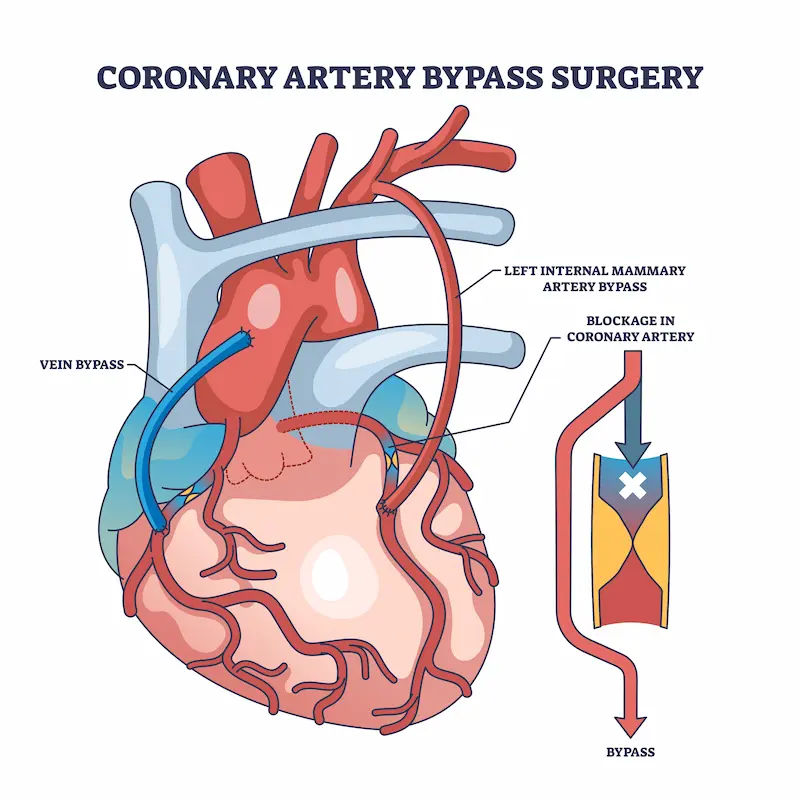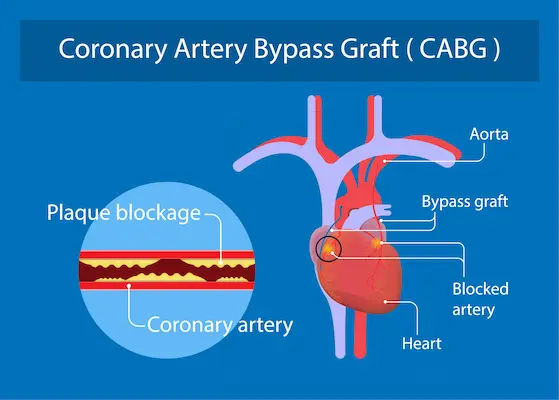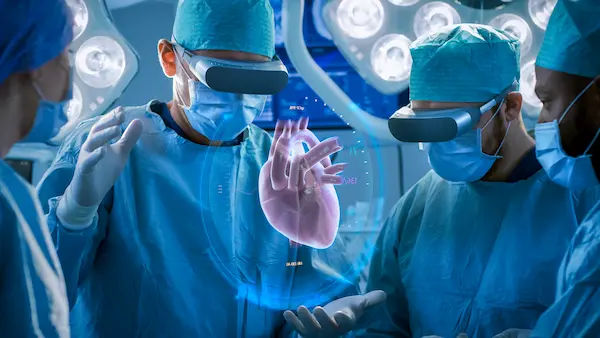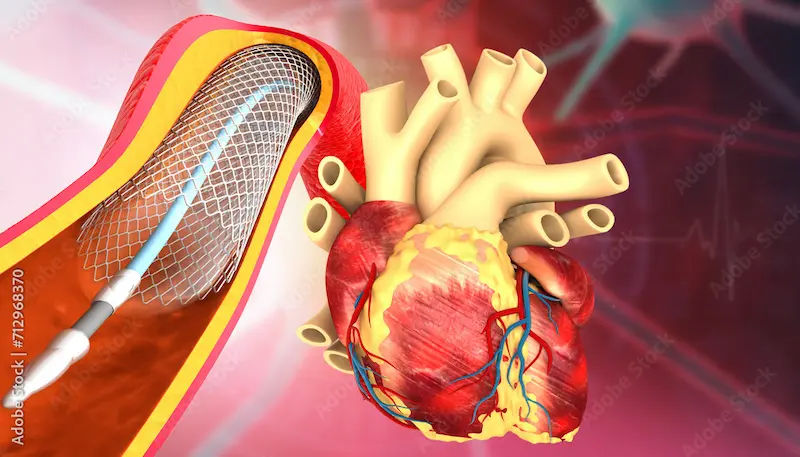Guide to Preparing For Bypass Surgery
Prepare effectively for heart bypass surgery with this comprehensive guide. Learn about pre-surgery tests, diet, exercise, mental readiness, and recovery tips to ensure a smooth procedure and faster healing.

Written by Dr. Md Yusuf Shareef
Reviewed by Dr. Rohinipriyanka Pondugula MBBS
Last updated on 13th Jan, 2026

Introduction
Facing coronary artery bypass graft (CABG) surgery can feel overwhelming. It's a major procedure, but it's also one of the most common and successful surgeries performed to restore blood flow to your heart and improve your quality of life. The key to a successful outcome lies not just in the surgeon's skill but also in how well you prepare yourself—physically, mentally, and logistically. This comprehensive guide is designed to walk you through every step of preparing for bypass surgery, transforming anxiety into empowerment. We'll cover everything from the medical tests you'll undergo to the emotional strategies that can ease your mind, ensuring you enter the operating room with confidence. Think of this preparation as your active role in your own healing journey, setting the stage for a smoother procedure and a faster, stronger recovery.
Understanding Why You Need Bypass Surgery
Before diving into preparation, it’s helpful to understand what the surgery entails and why it’s recommended. This knowledge can reduce fear of the unknown and help you see the procedure as a positive step forward.
What is Coronary Artery Bypass Grafting (CABG)?
Coronary artery bypass grafting, or CABG (often pronounced "cabbage"), is a surgical procedure that improves blood flow to the heart muscle. It's typically recommended for patients with severe coronary artery disease (CAD), where fatty deposits called plaque have built up inside the coronary arteries, narrowing or blocking them. Imagine these arteries as vital highways supplying fuel to your heart. When a highway is blocked, traffic stops. Similarly, a blocked artery can cause chest pain (angina) or lead to a heart attack. During bypass surgery, a surgeon takes a healthy blood vessel from another part of your body—such as your chest, leg, or arm—and creates a new pathway, or "bypass," around the blocked section of the coronary artery. This graft reroutes blood flow, effectively bypassing the blockage and delivering oxygen-rich blood to the heart muscle again.
The Goals of the Surgery: More Than Just Fixing a Blockage
The primary goal of CABG is to relieve symptoms and improve heart function. Specifically, it aims to:
- Relieve Chest Pain (Angina): This is often the most immediate benefit, allowing you to return to daily activities without pain or shortness of breath.
- Improve Your Quality of Life: By restoring proper blood flow, the surgery can increase your ability to exercise and reduce fatigue.
- Lower the Risk of a Heart Attack: For those with multiple or severe blockages, bypass surgery can significantly reduce the risk of future heart attacks.
- Improve Heart Pumping Function: In some cases, especially after a heart attack, the surgery can help improve the overall pumping function of the heart.
Understanding these goals can help you focus on the positive outcomes, which is a powerful motivator during the preparation phase.
Consult a Specialist for the best advice
The Pre-Surgery Medical Evaluation: What to Expect
In the weeks leading up to your surgery, you will undergo a thorough medical evaluation. This isn't just a formality; it's a critical process to ensure you are in the best possible condition for the procedure and to tailor the surgical plan to your specific needs.
Essential Diagnostic Tests Before CABG
Your medical team will order a series of tests to get a complete picture of your heart and overall health. These may include:
- Blood Tests: To check your red and white blood cell counts, kidney and liver function, and clotting ability.
- Chest X-ray: To examine the size and shape of your heart and lungs.
- Electrocardiogram (EKG/ECG): To assess your heart's electrical activity and rhythm.
- Echocardiogram: An ultrasound of your heart to see how well it's pumping (ejection fraction) and to identify any valve problems.
- Coronary Angiogram: This is the definitive test for coronary artery disease. A catheter is threaded into your heart's arteries, and dye is injected to make blockages visible on an X-ray. This test provides the "roadmap" your surgeon will use.
- Carotid Ultrasound: To check for blockages in the arteries in your neck that supply blood to your brain.
If you need to get routine blood work done as part of your pre-operative assessment, services like Apollo24|7 offers a convenient home collection for tests like HbA1c and lipid profiles, saving you a trip to the lab.
Get Your Health Assessed
The Pre-operative Appointment: Key Questions to Ask Your Surgeon
This is your opportunity to become an active participant in your care. Don't be shy; come with a written list of
questions. Here are some essential ones:
- What are the specific risks and benefits for me, given my health profile?
- How many of these procedures do you perform each year?
- Where will the grafts be taken from?
- What can I expect during my hospital stay and recovery?
- What medications should I stop taking before surgery? (Especially blood thinners or diabetes medications).
- What is the success rate for a procedure like mine? Getting clear answers will build trust and alleviate anxiety.
Getting Your Body Ready: Physical Preparation
Your body is about to undergo a significant event. Preparing it physically can strengthen your resilience, reduce the risk of complications, and speed up your recovery.
Diet and Nutrition Tips to Strengthen Your System
In the weeks before surgery, focus on a heart-healthy diet to build up your strength. This isn't about drastic weight loss but about nourishing your body. Here are some key dietary tips:
- Lean Protein: Include sources like chicken, fish, beans, and lentils to aid tissue repair.
- Fruits and Vegetables: Load up on antioxidants and vitamins to support your immune system.
- Whole Grains: Opt for brown rice, quinoa, and whole-wheat bread for sustained energy.
- Hydration: Drink plenty of water unless your doctor advises otherwise.
Your doctor may give you specific instructions, such as following a low-sodium diet to manage blood pressure. If you have questions about crafting the right pre-surgery diet, consulting a nutritionist via Apollo24|7 can provide
personalised guidance.
The Role of Gentle Exercise (If Approved by Your Doctor)
If your doctor approves, staying active is beneficial. Gentle activities like walking can improve your circulation and
overall fitness, which helps you withstand the stress of surgery. Never start a new, strenuous exercise regimen without your doctor's clearance.
Smoking Cessation and Alcohol: Non-Negotiable Steps
This is arguably the most important step. Smoking severely damages your blood vessels and lungs, dramatically increasing the risk of breathing problems during surgery and slowing wound healing afterward. Stopping smoking even a few weeks before surgery can make a substantial difference. Similarly, alcohol can interfere with anaesthesia and medications. Your medical team will provide clear guidelines on when to stop both.
Preparing Your Mind and Emotions
Mental readiness is as crucial as physical preparation. Addressing fear and anxiety head-on can have a tangible impact on your surgical experience.
Managing Pre-Surgery Anxiety and Stress
It's completely normal to feel anxious. Techniques to manage this include:
- Education: Reading reputable guides like this one reduces fear of the unknown.
- Mindfulness and Deep Breathing: Simple breathing exercises can calm your nervous system.
- Talking About It: Share your fears with family, friends, or a therapist. Don't bottle them up.
The Power of Mental Rehearsal and Positive Visualisation
Many athletes use visualisation to prepare for competition. You can do the same. Spend a few minutes each day calmly imagining a positive scenario: visualise yourself going through the pre-op process calmly, waking up after surgery feeling stable, and taking your first steps toward recovery. This practice can build neural pathways that make the actual experience feel more familiar and less frightening.
Organising Your Life for a Smooth Recovery
A little logistical planning can prevent a lot of stress later, allowing you to focus entirely on healing when you return home.
Your Home Preparation Checklist
Before your surgery, preparing your home can make recovery smoother and safer. Consider these steps:
- Create a Recovery Zone: Set up a comfortable chair or bed on the main floor with pillows, a table for
water/medications, and easy access to a bathroom. - Meal Prep: Cook and freeze several meals in advance.
- Safety Proof Your Home: Remove tripping hazards like loose rugs. Install grab bars in the bathroom if necessary.
Arranging Help: Family, Friends, and Caregivers
You will need help with driving, cooking, cleaning, and shopping for at least the first few weeks. Line up this support system before your surgery. Don’t hesitate to be specific about what you need.
Financial and Administrative Paperwork
Handle insurance pre-authorisations and any other paperwork ahead of time. Inform your work about your medical leave. Having these tasks completed will give you peace of mind.
The Day Before and Day of Surgery
Final Instructions: Fasting, Medications, and Hygiene
You will be given strict instructions, typically to fast (no food or drink) after midnight the night before your surgery. You may also be asked to shower with a special antibacterial soap to reduce the risk of infection. Follow all medication instructions precisely.
What to Pack for Your Hospital Stay
Pack light but thoughtfully: comfortable, loose-fitting clothing (especially button-down shirts that are easy to put on), slip-on shoes, toiletries, glasses (not contacts), and a list of your medications. Leave valuables at home.
Conclusion
Preparing for heart bypass surgery is a proactive journey that empowers you to become a key player in your own health outcome. By taking charge of your physical health through diet and lifestyle changes, fortifying your mental and emotional well-being, and organising your life for a seamless recovery, you are building a strong foundation for success. Remember, this surgery is a well-established procedure designed to give you a new lease on life, free from the limitations of coronary artery disease. Trust your medical team, lean on your support network, and focus on the positive future ahead. Your preparation today is the first and most important step on your path to recovery and a healthier, more active life. If you have any lingering concerns about your symptoms or the preparation process, don't hesitate to consult a cardiac specialist online with Apollo24|7 for personalised advice and reassurance. Consult a Specialist for the best advice
Consult a Specialist for the best advice

Dr. Tripti Deb
Cardiologist
40 Years • MBBS, MD, DM, FACC, FESC
Hyderabad
Apollo Hospitals Jubilee Hills, Hyderabad

Dr. Zulkarnain
General Physician
2 Years • MBBS, PGDM, FFM
Bengaluru
PRESTIGE SHANTHINIKETAN - SOCIETY CLINIC, Bengaluru

Dr. E Prabhakar Sastry
General Physician/ Internal Medicine Specialist
40 Years • MD(Internal Medicine)
Manikonda Jagir
Apollo Clinic, Manikonda, Manikonda Jagir
(150+ Patients)
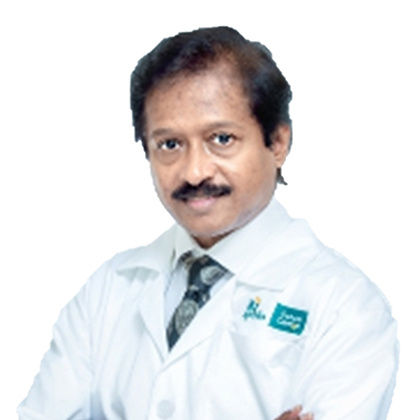
Dr. Rakesh Gopal
Cardiologist
22 Years • “ Trained in Trans Aortic Valve Implantation ( TAVI ) from Mehmet Akif Ersoy Hospital Istanbul, Turkey “ & MD (General Medicine), FRCP (Glasglow)DNB( Cardiology), FESC, HICR Cert (Harvard University, USA), Angioplasty Training from Washington Adventist Hospital USA, Asan Medical Centre, Seoul Korea, Board certified in Cardio Oncology, ICOS- USA
Chennai
Apollo Hospitals Heart Centre Thousand Lights, Chennai
(100+ Patients)
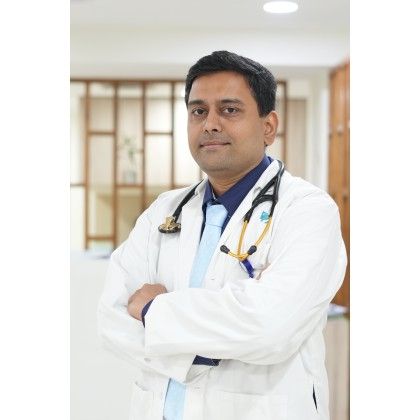
Dr Gautam Naik
Cardiologist
12 Years • Senior ConsultMBBS, MD (General Medicine), DM (Cardiology), Interventional Cardiology Fellowship (Royal Papworth Hospital, Cambridge, UK), Structural Heart Intervention Fellowship (Barts Heart Centre, St Bartholomew's Hospital, London)
Delhi
Apollo Hospitals Indraprastha, Delhi
Consult a Specialist for the best advice

Dr. Tripti Deb
Cardiologist
40 Years • MBBS, MD, DM, FACC, FESC
Hyderabad
Apollo Hospitals Jubilee Hills, Hyderabad

Dr. Zulkarnain
General Physician
2 Years • MBBS, PGDM, FFM
Bengaluru
PRESTIGE SHANTHINIKETAN - SOCIETY CLINIC, Bengaluru

Dr. E Prabhakar Sastry
General Physician/ Internal Medicine Specialist
40 Years • MD(Internal Medicine)
Manikonda Jagir
Apollo Clinic, Manikonda, Manikonda Jagir
(150+ Patients)

Dr. Rakesh Gopal
Cardiologist
22 Years • “ Trained in Trans Aortic Valve Implantation ( TAVI ) from Mehmet Akif Ersoy Hospital Istanbul, Turkey “ & MD (General Medicine), FRCP (Glasglow)DNB( Cardiology), FESC, HICR Cert (Harvard University, USA), Angioplasty Training from Washington Adventist Hospital USA, Asan Medical Centre, Seoul Korea, Board certified in Cardio Oncology, ICOS- USA
Chennai
Apollo Hospitals Heart Centre Thousand Lights, Chennai
(100+ Patients)

Dr Gautam Naik
Cardiologist
12 Years • Senior ConsultMBBS, MD (General Medicine), DM (Cardiology), Interventional Cardiology Fellowship (Royal Papworth Hospital, Cambridge, UK), Structural Heart Intervention Fellowship (Barts Heart Centre, St Bartholomew's Hospital, London)
Delhi
Apollo Hospitals Indraprastha, Delhi
More articles from Coronary artery disease
Frequently Asked Questions
1. How long does it take to recover from bypass surgery?
Most people stay in the hospital for 3 to 8 days after surgery. The initial recovery period at home is about 6 to 8 weeks, during which you'll gradually regain strength. Full recovery, including returning to all normal activities, can take 3 to 6 months, often involving a structured cardiac rehabilitation program.
2. What are the most common risks of coronary bypass surgery?
As with any major surgery, risks include bleeding, infection, blood clots, and reactions to anaesthesia. Specific risks related to CABG can include irregular heart rhythms, inflammation of the chest cavity, memory loss or 'fogginess' (often temporary), and kidney failure. Your surgeon will discuss your personal risk profile based on your age and overall health.
3. What is the life expectancy after a successful bypass surgery?
Bypass surgery is highly effective at improving longevity and quality of life. Many people live for 15, 20, or even 30 years after the procedure. Long-term success heavily depends on adopting lifelong heart-healthy habits, such as a proper diet, regular exercise, and taking prescribed medications.
4. Can coronary artery disease return after bypass surgery?
Yes, it is possible for new blockages to form in the grafts or in other arteries over time. This is why post-surgery lifestyle changes and medication adherence are crucial to slow the progression of atherosclerosis and protect your new grafts.
5. What should I avoid doing after I get home from the hospital?
For the first 6-8 weeks, you must avoid driving, lifting anything heavier than 5-10 pounds (like a gallon of milk), and strenuous activities. Specifically, avoid pushing, pulling, or lifting with your arms to allow your breastbone (sternum) to heal properly.



